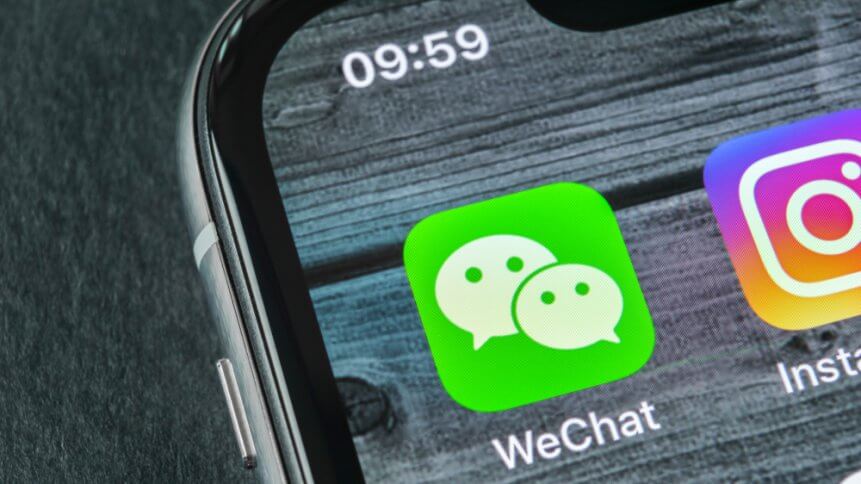How Trump’s WeChat ban affects businesses in the US

- The escalating tech war between US and China has led to a potential ban and discontinued use of WeChat in the US
- WeChat is an indispensable app used by wider Chinese diaspora to remain connected with families and businesses
President Trump’s proposed sweeping bans on US transactions with owners of WeChat and video-sharing app TikTok will have a direct impact on the millions of US-based individuals using the app to keep in touch with families or run businesses in China.
Analytics firm Apptopia states WeChat has about 19 million daily active users in the US. While the social media app is essentially used for communication and messaging purposes, it also has the capacity to do a lot more. You’ll find that the app provides all sorts of services and features usually reserved for individual Silicon Valley giants. WeChat enables users to complete peer-to-peer transactions, hail a ride, get takeout, book a doctor’s appointment, or theatre tickets, and in China, couples can register for divorce. That’s a whole lot of apps rolled into one.
The owners of WeChat, Chinese multi-national conglomerate, Tencent, also holds deep roots in the North American and European markets. The tech giant owns LA-based Riot Games and also holds shares in Activision Blizzard, Spotify, Snap, among others. Their fingers are in many pots, not just ones cooking in their Shenzhen, China headquarters.
To date, WeChat has been used as a vehicle to reach out to the Chinese market. Facebook, Instagram, and Google are banned by Beijing and brands quickly turned to local apps like WeChat and Weibo to tap into one of the largest markets in the world. This also means that US companies in China may bear the unfavorable consequences of this: Due to China’s heavy reliance on these apps to directly engage with local audiences, American firms may find it hard (or impossible!) to jostle in.
For US companies operating closer to home, but catering to a foreign clientele, the ban will see the global tourism industry take a hit. This industry has already been hit hard by the ongoing pandemic, but if you’re an American tour operators or city that that rely on Chinese tourists, the souring of this relationship between the two countries is not ideal.
Don’t forget – Chinese visitors are the biggest spenders of all international travelers, making up US$36.4 billion of the American economy in 2018. On average, a Chinese tourist will spend up to US$6,700 per trip they make to the States, about 50% more than the average international visitor in the US.
Astute American cities looking to lure big-spend travelers have taken note: Las Vegas’s McCarran International Airport collaborated with WeChat in developing an app that helped guide Chinese tourists to resorts and tourist attractions around the city and surrounding area. The app debuted in 2017 and also provided passengers with the information needed before boarding the regular nonstop flights from Beijing to Las Vegas on Hainan Airlines.
In January, Hainan Airlines discontinued service, and the airport stopped using WeChat following the indefinite hold on the non-stop service.
However, the partnership did not go unnoticed, with other Las Vegas-based companies turning to the multi-purpose app to connect with visitors. Caesars Entertainment casino and hotels also adopted WeChat and made it possible for Chinese tourists to book rooms at its US properties via the app. Ron Reese, a spokesman of Las Vegas Sands, highlighted that apps like WeChat could help boost the tourism relationship between the US and world travelers.
YOU MIGHT LIKE

US-China trade war: Will technology companies suffer?
“Social media and lifestyle apps like WeChat play an important role in the business of global tourism,” said Reese. “Las Vegas is certainly at a point where we need to be communicating with as many customers as possible. Hopefully, this is resolved in a way that won’t have a negative impact on our ability to attract visitors to Las Vegas.”
Meanwhile, for US companies that have bases in China, the ban brings a host of disadvantages to light.
“The ban would hurt Walmart and Starbucks more significantly as they rely on Tencent to get traffic,” Chengdong Li, a Beijing-based tech analyst, told Reuters.
Walmart’s “Scan-and-Go” payment service that is offered in the US through its own app and exported the service to China via WeChat is an example of how US companies utilize WeChat to gain ground in China. The retail giant reported more than 30% of its transaction in China is made via the Scan-and-Go payment service.









